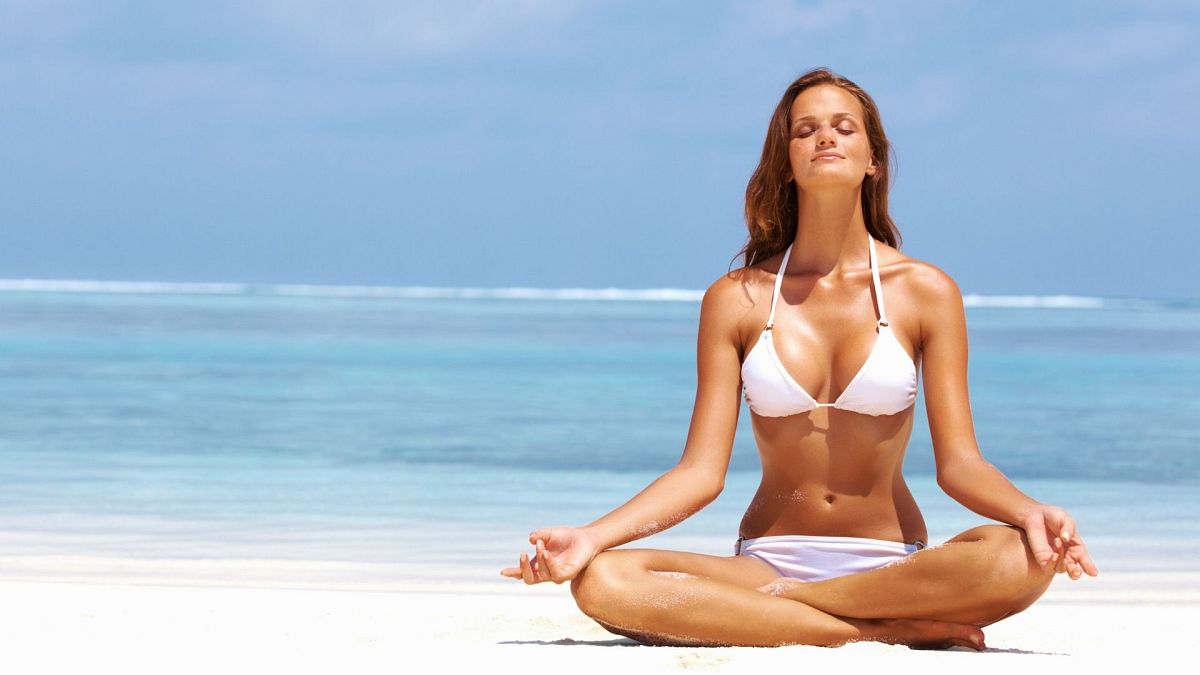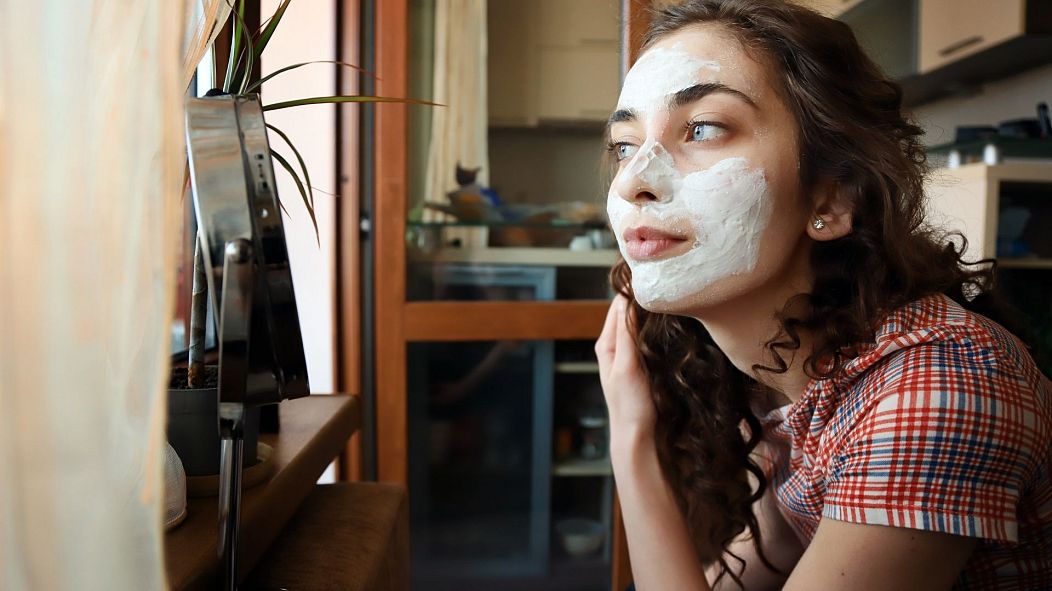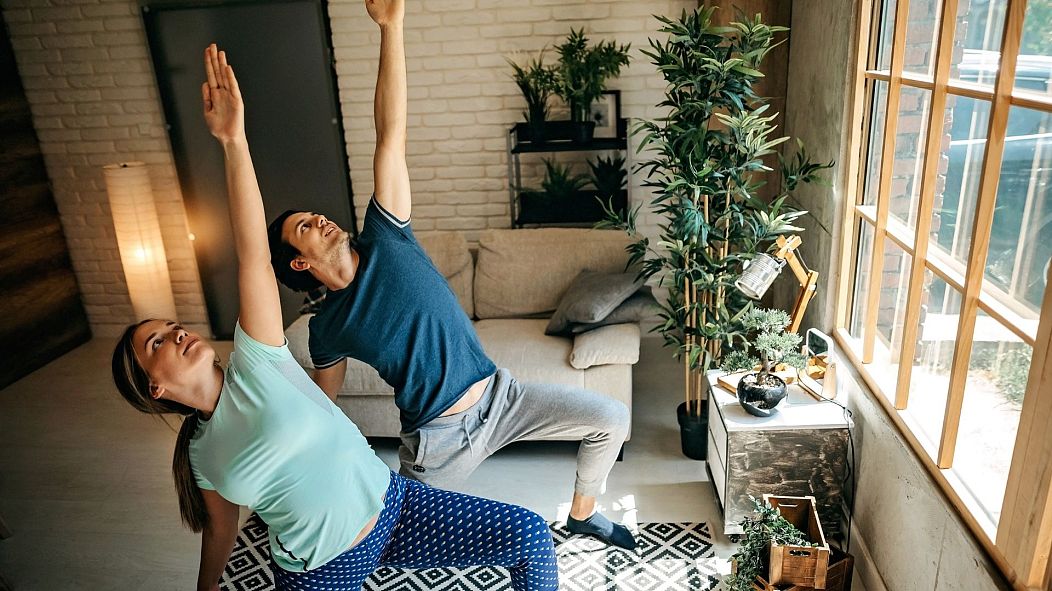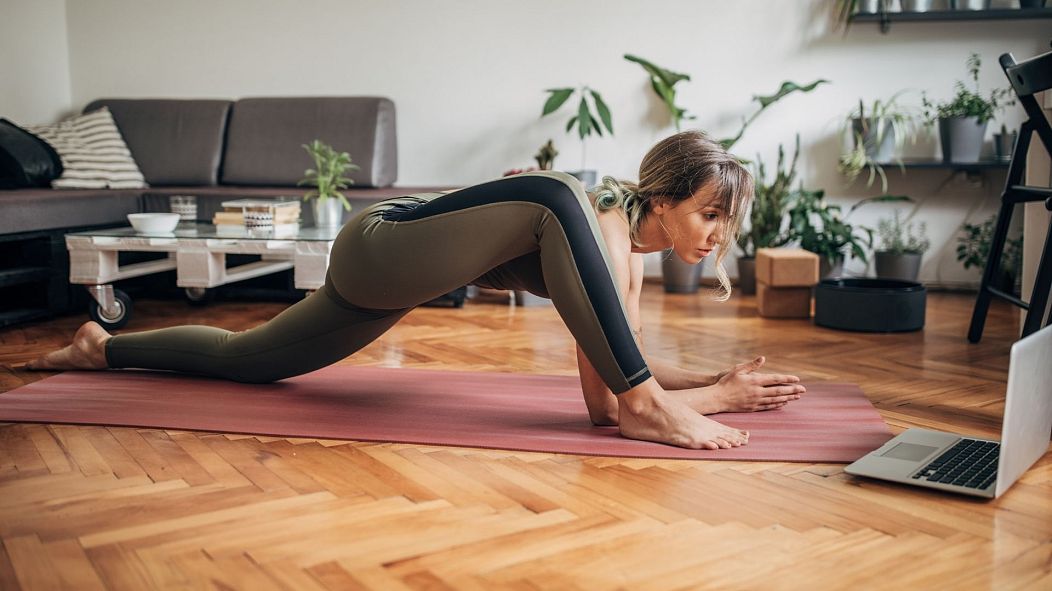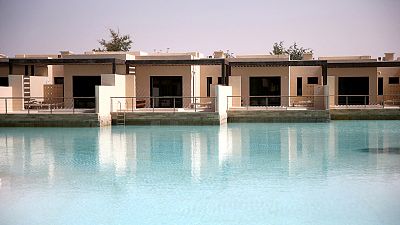What it's like taking part in a wellness retreat from your living room.
Rachael Davies is a journalist based in Edinburgh, United Kingdom.
As of 2019, the wellness tourism industry was worth an enormous $639 billion (€528 billion), with retreats and mindfulness holidays attracting more and more people looking for a mental reboot as well as a getaway.
Like so much else in the travel industry, that came to a screeching halt at the beginning of 2020, when the pandemic grounded international travel for most of the year.
At a time when people needed a mental health holiday more than ever, wellness retreats were no longer possible - so an alternative emerged. Many health tourism companies put together virtual retreats, held over video calls, featuring the same activities as you might expect from a physical retreat.
Attendees could join from home to take part in yoga classes, meditation and other relaxing activities. Retreats are, by their very nature, breaks from your everyday life, an escape from whatever is stressing you out. Is it possible, then, to get the same benefits from a virtual retreat as a physical one?
A wellness retreat from home
I attended Restival 2.0, a virtual wellness festival packed with workshops from small businesses, all designed to bring some joy and happiness to people’s lives. From panel talks about the stories behind certain craft projects to a cooking lesson for Nepalese food, the activities were varied and diverse.
Guests could dip in and out, choosing what suited them best. While I had fun starting my day with pilates and ending it with a virtual spa session that taught me the best way to cleanse my skin, I found my mind wandering at times. Attending a virtual retreat is all well and good, but I was still very aware that I was just in my living room, with all the same scenery around me that had been there for the past year.
To see if I was missing a trick with my experience at a wellness festival, I spoke to Jo Howarth, a qualified mindfulness practitioner and the founder of The Happiness Club, which specialises in helping people with their emotional wellbeing.
Jo explained that the value of these retreats is having a committed and sustained break from the everyday slog, by giving yourself a timeout.
“When you were a kid, a timeout was because you've done something naughty and you need to think about what you've done. It's not something that we're actively encouraged to do,” she says. “I think that's one of the biggest things that a retreat gives you, whether it's virtual or in real life...it gives you that moment to purely focus on you and it's time that we just don't get in our normal everyday business of life.”
So what’s the difference between attending a wellness festival and simply setting aside some time to practice self-care? Because let’s be honest, some retreats are known for their expensive tickets, money that could also be used to fill a luxurious day full of your favourite treats.
“You're making a commitment to yourself, but also to somebody else,” notes Jo. “That clicks into our human nature of not wanting to let other people down...but at the same time we're not letting ourselves down. There is a very subtle mindset shift there.”
Holding yourself accountable for self-care is something that many of us struggle with, especially in lockdown when we can’t fill our days with other activities or trips. Although you’re not necessarily committing to a plane ticket, or booking some time off work, knowing that someone out there is expecting you to show up is still an incentive in itself.
But is the technology distracting?
However, there are some things that a virtual retreat simply cannot recreate. Many traditional retreats are oases from daily stressors, including, and often most importantly, technology.
Katie Phillips, mental health first aider and coach, is sceptical about the benefits of virtual retreats, largely because they simply can’t offer the same break from screens and technology that cause so much stress in the first place.
“I know the things that are stressing me and my clients...and that's generally being connected the whole time,” Katie explained. “Retreats, traditionally, have been about 'let's go and disconnect and connect to ourselves'”.
“We all know that doing everything over Zoom is not the same experience as in real life. Our brain just can't process so many bits of information. I do think you can get benefits from [virtual retreats], but I think it needs to be handled on a much smaller, more intimate basis.”
According to the Mental Health Foundation, more than half of the UK population have reported feeling anxious as a result of the pandemic. Clearly, people are looking for ways to improve their mental health and have a break from the anxious feelings that are so common nowadays.
For virtual wellness events to be useful, both Jo and Katie had similar advice.
“Prepare yourself and whoever else is in your vicinity that this is happening,” Jo said. “Make that commitment to yourself and honour that the fact that I'm going to be in this room for however long the retreat is.”
Katie echoed her sentiments, saying also that limiting screen time after the retreat is vital after several hours sitting on a video call.
Ultimately, there is no one-size-fits-all solution for mental health problems during the pandemic. At least with a virtual retreat, you can commit to having a portion of your day or week where you don’t have to think about anyone else other than yourself.
If you can dedicate your time to being absorbed by the retreat, you’re likely to find that you get much more out of it. Set up ‘do not disturb’ on your phone, close your bedroom door, and immerse yourself in the activities. For a few hours, you can pretend you’re on a luxurious beach in Bali and let your imagination whisk you away for the day.
Every weekday at 21.00 CET, Euronews Travel brings you a story from somewhere different around the world. Download the Euronews app to get an alert for this and other breaking news. It's available on Apple and Android devices.
